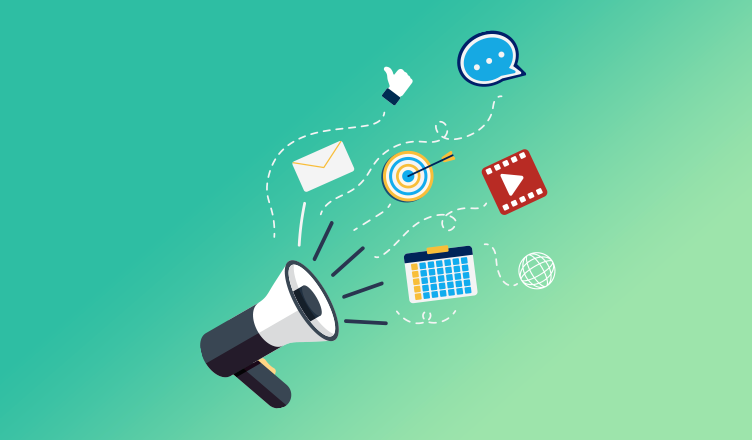What Is the Difference between Traditional & Digital Advertising
Freelancing Freelance SkillsPosted by admin on 2023-07-04 11:10:29 | | عربي
Share: Facebook | Twitter | Whatsapp | Linkedin Visits: 46

The main difference between digital and traditional marketing is the medium through which a marketing message is delivered to an audience. Traditional marketing relies on print media such as magazines and newspapers, whereas digital marketing relies on digital platforms such as social media and websites.
Finding the correct balance between traditional and digital marketing is crucial to a successful campaign. Both play a significant function in a marketing plan in 2022.
What’s Traditional Marketing?
Traditional marketing uses traditional methods to promote a brand or product. Every day, customers are bombarded with traditional advertising when they hear commercials on the radio or pass by a billboard. Throughout their days, consumers are exposed to a variety of traditional marketing methods that include:
Outdoor (Billboards, bus/taxi wraps, posters, etc)
Broadcasting (TV, Radio, etc)
Print (Magazines, newspapers, etc)
Direct Mail (catalogs etc)
Telemarketing (Phone, text message)
Window display and signs
PROS and CONS of Traditional Marketing:
PROS:
Impactful and easy to understand:
A visually attractive billboard or a compelling television commercial is a common occurrence in most people's daily life. They're simple to understand and frequently funny.
Easily recognizable:
People are familiar with traditional advertisements since they have been used for a long time, and they can readily comprehend and recognize them.
High Reach:
Because traditional marketing platforms have such a broad client base, a single ad can reach millions of customers in a single circulation. This media can also be used to reach people who live in places where there is no internet access or where network connectivity is limited.
CONS:
More difficult to measure campaigns:
Traditional marketing campaigns can be measured with brand trackers, but they aren't nearly as in-depth or clever as the tools available for digital marketing.
Expensive:
If you're a new brand, you probably don't have the budget for a four-page spread in big magazine. Traditional marketing will set you back a significant amount of money.
What’s Digital Marketing?
Basically, digital marketing is the umbrella phrase for any and all internet marketing efforts. Companies employ all digital platforms to reach out to existing and new customers in digital marketing. Google search, social media, email, webpages, and so on are examples of channels. Furthermore, the 'Internet' is the most crucial technology for digital marketing and it include:
Social media (Facebook, Instagram etc)
Website
Content marketing
Affiliate marketing
Inbound marketing
Email marketing
PPC (pay per click
SEM (Search engine marketing)
PROS and CONS of Digital Marketing:
PROS:
Cost-effective:
Small businesses and startups with limited capital can discover a more cost-effective and efficient way to market their goods and services.
Easy to measure your campaigns:
In contrast to traditional marketing, the details of digital marketing tracking are quite detailed. This makes your lessons for your future round of marketing activities crystal clear.
Higher revenue generation:
When customer engagement and conversion is higher, it will reap higher profits for your business. And so, the businesses can expand both domestically and internationally.
CONS:
Less permanent:
Digital marketing campaigns such as Google AdWords, banner ads, promotional emails, and social media ads can be transitory and ineffective. They're intangible and easy to overlook. Your ad will be gone from your target audience's screen if they keep scrolling or click to the next page.
Constantly evolves:
There is a lot to understand in order to get the most out of your digital marketing efforts. From search engine marketing to social media, each channel usually requires its own expert to get the most bang for your dollars. A grassroots social media marketing approach, on the other hand, is a terrific place to start. For additional ideas, check out our digital marketing plan guide.
In conclusion, we can say that digital marketing has evolved in recent years, but it has become more popular than traditional marketing due to a variety of benefits, one of which is effectiveness over cost. Smart businesses, on the other hand, combine the two to build strong relationships with prospects, leads, and customers.
Search
Categories
Recent News
- As an employer: How can I transfer money to freelancing sites?
- 6 Reasons You’re Not Getting Any Work On Freelance Sites
- 6 skills you must learn in 2023 as a freelancer
- 7 Productivity Tricks For Working As a Freelancer
- How To Be an Exceptional Freelancer
- الأخطاء التي يجب تجنبها إذا كنت تريد أن تكون فري لانسر ناجحًا
- How To Measure Your Business Growth
- How To Measure Your Business Growth
Popular News
- How to get the best projects on freelancing platforms
- As an employer: How can I transfer money to freelancing sites?
- 7 tools that help you as Freelancer to work remotely from home successfully
- How to Write a Mission Description that Attracts Freelancers
- 5 important tips for new entrepreneurs in 2023